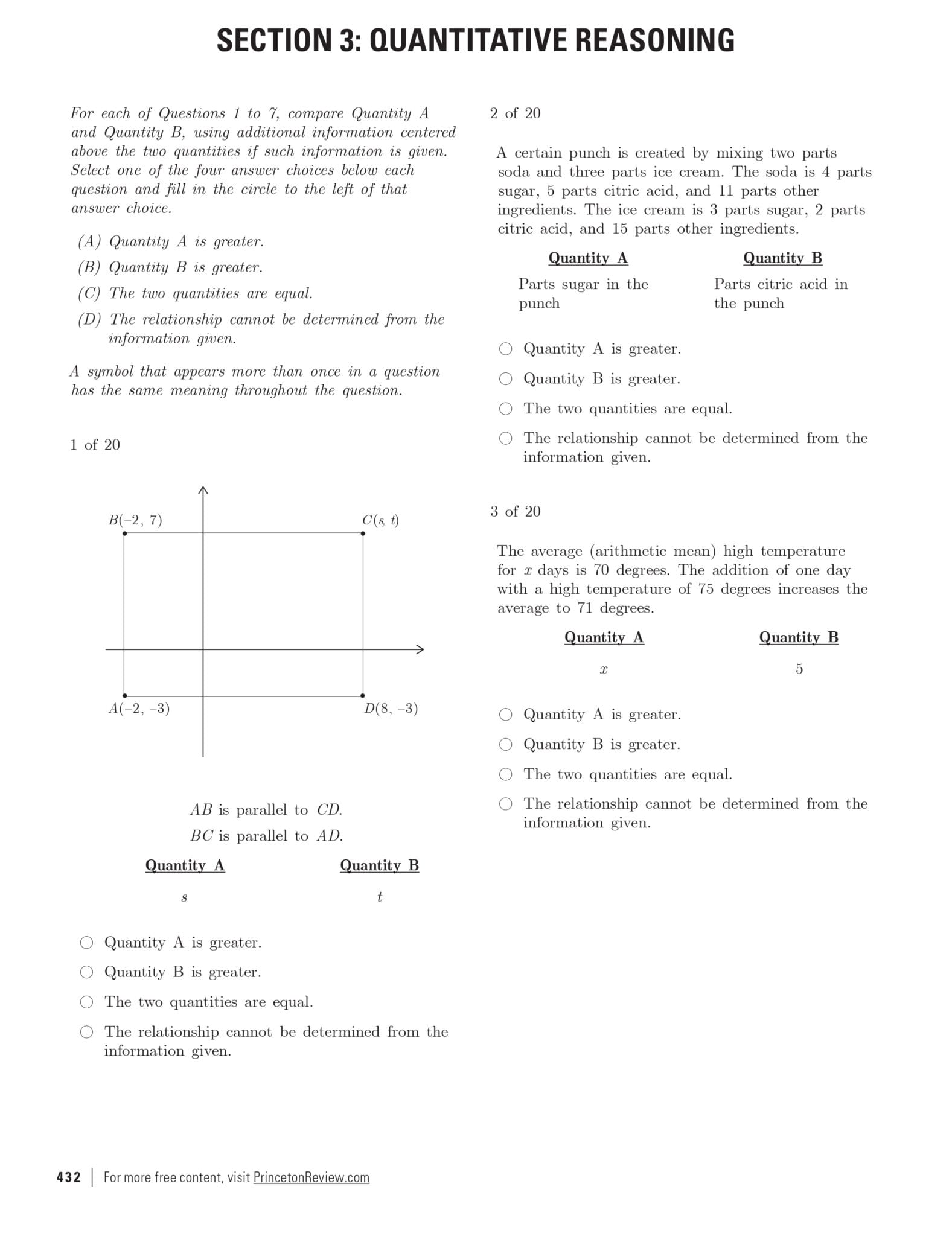

The GRE Test Overview
The GRE Test was established in 1936 as the GRE Test, or Graduate Record Examinations, and is a standardised, mainly computer-based test that is required for entry to the majority of graduate schools in the USA and Canada. The score is valid for five years and ranges from 130-170. There are over a thousand GRE test centers in 160 countries, and you can sit the GRE five times a year, as long as you leave a gap of 21 days between exams. The cost of sitting the GRE Test is approximately $205.
The GRE test - Structure
The GRE Test: There are six sections in the exam, although your score will not take account of the Experimental or Research section, which students are asked to answer, in order to help the ETS, which produces the GRE Test, try out new forms of questions and develop the test. The other sections are:
1) Analytical writing
2)Verbal reasoning – two papers
3)Quantitative reasoning – two papers
You will be given a 1-minute break between sections, and a ten-minute break after the third section.
You are allowed to skip questions, go back and revise your answers, mark answers for review and choose what to answer first. None of these options are available in the GMAT Test. The lowest score you can get in the GRE is 130, even if every answer is wrong.
The aim of the GRE is to test your critical thinking skills, analytical and quantitative reasoning abilities, and knowledge of Standard English. The exam is broken down, as illustrated in the table, below:
|
Paper
|
Number of question
|
Allocated time
|
|---|---|---|
|
Verbal reasoning - two sections
|
20 per section
|
30 minutes per section
|
|
Quantitative reasoning - two sections
|
20 per section
|
35 minutes per sectio
|
|
Analytical writing
|
Two essays
|
30 minutes per essay
|
Is the GRE an adaptive test?
Until 2011, the GRE Test was a computer-adaptive test which changed the level of the questions, question by question. This is not longer the case -although this approach is still used in the GMAT- and now the GRE Test adapts levels one section at a time.
The GRE Verbal Reasoning Section
This section includes reading comprehension, critical reasoning -which is tested by providing incomplete data -and vocabulary questions. You will usually be asked to answer:
- 6 text completions
- 10 critical reading questions
- 4 sentence equivalents .
During the GRE TEST you may be asked to summarise text, prioritise points, draw conclusions, show that you understand text and complete sentences using appropriate vocabulary. Until recently, you would have been given line references to help you find information, but this has changed and you will now see highlighted passages.
Quantitative Reasoning Section
This section tests your knowledge of mathematics, algebra ,geometry and reasoning skills. You will usually be asked to answer:
- 3 data interpretation questions
- 8 quantitative comparisons
- 9 problem-solving questions
Dring the GRE Test you may have to fill in blanks, interpret and analyse information, use mathematics models to solve problems, and apply basic data analysis methods. An on-screen calculator is supplied in this section
Analytical Writing Section
The GRE test Analyticla Writing Secton – in this section tests your knowledge of Standard English, your use of logic to analyse arguments, organisation and development of ideas, your ability to write an effective and coherent essay, and to clearly communicate complex ideas.
This section allocates 30 minutes per essay. You will have to use the in-test software with limited word processing features – which do not include spellchecker.
The two tasks can be divided into :one argument and one issue. All the topics which are likely to crop up can be found on the ETS website. Remember, you are not being asked for a personal opinion, but to extract facts and conclusions, and to determine if an argument has merit and is logical. You must supply examples not simply opinions, and ensure that you stay on-topic.
GRE Subject Tests
GRE subject tests are being phased out and there are currently only four subjects on offer:
- Chemistry
- Mathematics
- Physics
- Psychology
These tests allow you to demonstrate the depth of your specialist knowledge in a subject and are often used to show achievements in a given field. GRE subject tests are paper-based and have the multiple-choice format. .
Each paper lasts 2 hours 50 minutes and is normally delivered to test centres in September, October and April.
GRE Test Preparation Course
Prepare for the GRE exam with Elab's preparation program. This program will prepare you for the entire GRE test and covers concepts, strategies and tips for each section, including math, verbal and essay.
The GRE test - registering, and sitting the GRE
Register for the test by setting up an ETS account on their website.
Ensure that the name you provide on your ID is your actual name. The test centre will check the names match.
You can reschedule the GRE up to four days before you are booked to sit it.
Arrive 30 minutes early at the test centre and make sure that you do not bring any notes, food , drink, tobacco or e-cigarettes into the centre.
You are not permitted to remove your shoes while sitting the GRE and you will not be able to choose where to sit, but will be assigned a place.
Once the test is finished, you will have the opportunity to review your score – and reject it if you do not wish it to be reported. You cannot reject a single section and accept others.
GRE score requirements
Ivy League Universities expect candidates to score around 330 in the GRE and to come in the top 10 percentile.
Overall, you must aim for a score in the 160s if you wish to be considered for a place at a prestigious university.
You have to try and overcome your nerves and speak naturally, so that the examiner has a realistic conversation, rather than a well-practiced and artificial experience. Relax. They are not here to trip you up or to catch you out and don’t forget that the whole paper only lasts under a quarter of an hour.
Don’t use words you are unfamiliar with because you want to impress and keep it fluent, simple, and clear.
How can I prepare for the GRE?
Elab can help.We run workshops for GRE candidates , and can organise one to one tuition, if that is what you prefer. Our program will provide you with the techniques and tips you need to maximise your score and ensure that you work efficiently and effectively.
Call or email us today for further information on the test and our GRE/GMAT preparation schedule.
What do you think about Elab's help?












